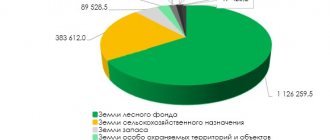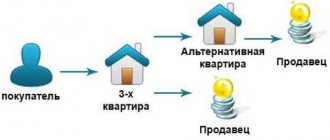To manage apartment buildings, various types of associations of people who live in such buildings or own residential or non-residential premises are created. Quite common forms of management organizations include homeowners' associations (HOAs) and housing-construction cooperatives (HBCs).
Dear readers! To solve your specific problem, call the hotline or visit the website. It's free.
8 (800) 350-31-84
A homeowners' association is currently the most common form of management of an apartment building, which involves the provision of services for maintaining common property in one or more buildings. This form is regulated by the provisions of the Housing Code of the Russian Federation.
A housing construction cooperative is also a form of management of an apartment building. However, this form of management is created even at the stage of construction of a specific house, since in accordance with the current legislation (with the exception of the Housing Code of the Russian Federation) it is taken into account as a developer.
Similarities and differences between housing cooperatives and homeowners' associations
| Reasons for comparison | Housing and construction cooperative | Homeowners Association |
| Purposes of creating the association | Created for the construction of a specific house and its subsequent maintenance, including in terms of common property | Can be created only to service the common property of an apartment building or a group of such buildings |
| Number of participating members | A housing cooperative is recognized as complying with the requirements of current legislation if the number of its members is at least five, and it must include all owners of premises in an apartment building | To recognize the existence of an HOA as legitimate, it is required that it consists of at least fifty percent of the owners of premises in an apartment building. At the same time, an HOA can merge several apartment buildings, subject to the consent of all its participants |
| Regulatory regulation | Regulatory regulation of the activities of both HOAs and housing cooperatives is carried out only in accordance with the Housing Code of the Russian Federation and regulations adopted in its implementation at various levels of subordination (from federal to municipal) | |
| Carrying out commercial activities and distributing its results | Since the housing cooperative is a commercial legal entity, any result of financial activity that allows obtaining a certain amount of profit must be divided among all members of the cooperative in accordance with their shares of participation in the authorized capital of the legal entity | Although an HOA is recognized as a legal entity that has the right to conduct commercial activities (for example, renting out existing common property), however, profit due to the legal features of its functioning cannot be divided among the members of the HOA. All profits received are directed towards solving existing expenses or accumulated in special accounts of the organization for the purpose of further allocation to resolve emerging needs. |
| Contributions to the capital of a legal entity and obtaining property rights | In the case of full or partial payment of the share contribution provided for by the statutory documents of the housing cooperative, it is possible to obtain property rights, for example, ownership rights to residential or non-residential premises located in an apartment building. Contributions can be paid both during the construction of the house and after its completion. Full right of ownership and disposal, that is, classical ownership, arises only after share contributions have been paid in full for a specific property | Contributions are regular and are made in accordance with the payment schedule defined by the statutory documents. At the same time, the implementation of such contributions, even in full, does not entail property rights, since these contributions are directed towards the formation of a fund that ensures the functioning of the HOA itself and the contractors it hires |
| Transformation of housing cooperatives into HOAs and back | A housing cooperative into a HOA can be transformed based on a decision of the general meeting of owners of premises in an apartment building, and the procedure must be fully implemented with notification of all government bodies | Impossible, since the HOA cannot engage in the construction of apartment buildings. This is due to the purposes of creating such a legal entity. A housing cooperative can only be created with the participation of members of the HOA if a decision is made to build another apartment building that meets the requirements for a cooperative |
| Procedure for creating a legal entity | The procedures are similar, since all stages go through from the announcement of the constituent meeting, at which the decision to create a legal entity is made, to the registration of the formed legal entity with the state authorities. The list of documents used also does not differ, since in order to register both legal entities, you will need to provide statutory documents, as well as documents for the leaders of the association being created | |
| Board members and chairman | The members of the board and the chairman are selected from among the owners of premises in the apartment building. Information about the chairman as the head of the organization is entered into the Unified State Register of Legal Entities. The position of the chairman most often has the character of an actual acting one, since he is assigned a large number of rights and responsibilities recorded in the Charter of the organization | Board members are selected from among the owners of premises in an apartment building. The chairman is also selected from among the board, however, the position is nominal in nature, since the main rights and responsibilities fall entirely on the shoulders of a specially hired manager. However, data on the chairman as the head of the legal entity being created is entered into the Unified State Register of Legal Entities |
| Responsibility for financial obligations in case of their violation | Creditors have the right to apply to the members of the housing cooperative for repayment of existing debts, since the authorized capital consists of the share contributions of the members of the cooperative. However, foreclosure can only be applied to that part of the share that has not been paid | Even if there are large debts, they can be collected by creditors and resource supply organizations only from the legal entity itself. It is strictly prohibited to impose penalties on members of the partnership |
Cons of HOAs
- Financial relations. Residents must determine the amount of membership fees, where records will be kept, and who will accept payments and where.
- Dealing with persistent defaulters. The law does not provide for harsh measures against debtors.
- A large number of beneficiaries.
- Large costs for repairs of premises in case of unexpected breakdowns.
- Error in choosing chairman. The chairman may not be able to do the job or be passive and incompetent.
Apartment owners must understand that with this method of housekeeping, all responsibility for the condition of the house falls on them.
The procedure for transforming a housing construction cooperative into a homeowners' association
If the owners of premises in an apartment building have decided that there is no longer a need for a housing construction cooperative, they can create any form of management. The most important stage in the transformation of housing cooperatives into HOAs will be the holding of a constituent meeting.
constituent Assembly
This meeting must be prepared in advance. A notification about its holding is placed in places where information is provided in advance in order to inform all members of the cooperative about the urgent issue of changes in the activities of the service organization. Notification can be made in the form of an announcement on specially designed boards . Additionally, such information can be posted on the official website of the cooperative, if there is one, as well as in the GIS Housing and Communal Services.
The next stage is the actual holding of a meeting, at which a decision can be made to transform the housing construction cooperative into a homeowners' association. This decision must be formalized using a special protocol, since it is this protocol that will form the basis for the procedure for liquidating the cooperative and creating a partnership.
Such a protocol is subject to certain requirements, including the mandatory presence of a voting sheet on the issue raised. At the same time, all its members must vote for the liquidation of the cooperative, and fifty percent plus one vote of the total number of owners of premises in an apartment building is enough to vote for the creation of a partnership . The counting of votes is carried out without fail only taking into account the areas of residential and non-residential premises that are owned by voting persons (the larger the area, the more votes).
The procedure for the liquidation of housing cooperatives and the creation of an HOA
If a positive decision is made on the need to carry out a transformation procedure, it will be necessary to carry out the procedure for liquidating a legal entity in the form of a housing construction cooperative and creating a homeowners’ association.
This procedure is carried out in several stages, the key of which is the notification of government authorities about the decision made and the mechanisms for its implementation, as well as creditors about the liquidation of a pre-existing legal entity. In addition, it will be necessary to carry out a procedure for full mutual settlements with all existing counterparties in order to close existing financial obligations.
After this, it is possible to obtain a certificate of liquidation of the legal entity and its deregistration with the tax authorities.
Registration of a new legal entity
The registration of a new legal entity can occur in parallel with the liquidation of the previous legal entity. The main condition is the correct documentation of the partnership being created, from the point of view of the current housing legislation. Otherwise, registration of a new legal entity may be denied.
The homeowners' association must begin to fulfill its immediate responsibilities within one month after the liquidation of the cooperative . This period is not specified in any regulatory act and is formed only on the basis of existing law enforcement practice. Such time frames are determined due to the fact that, otherwise, residents of an apartment building will have to choose a different form of management of their home and the common property located in it.
If you cannot create your own HOA for some reason, you can try to join existing associations through a special vote.
Here, the key condition will be the consent of not only the owners of the premises in the “undecided” house, but also in the house to which the legal annexation will take place. This feature is due to the fact that otherwise the decision made could be considered unlawful, and the very fact of annexing an apartment building to an already created homeowners’ association could be challenged, including on the basis of a specially issued court decision.
Federal laws governing the creation of HOAs
First of all, I would like to note that the Federal Law “On Homeowners' Associations” dated June 15, 1996 No. 72-FZ lost force on March 1, 2005, i.e. from the moment the Housing Code of the Russian Federation came into force. However, there are still cases when it is referred to in the minutes of general meetings of owners on the creation of an HOA and in some other documents.
The following articles concern homeowners' associations in the Housing Code of the Russian Federation: Art. — (conducting general meetings of owners, voting at a general meeting, competence of the meeting), chapters, (creation and activities of HOAs, legal status of HOA members).
Of course, the Housing Code of the Russian Federation does not contain detailed instructions on how to create an HOA, but, nevertheless, everything is laid out in it quite clearly.
The list of documents required for registering a HOA as a legal entity, the timing and procedure for registration, is also regulated by the Federal Law “On State Registration of Legal Entities and Individual Entrepreneurs” dated 08.08.2001 No. 129-FZ.
Members of the HOA told why it is worth leaving the management company
Let us remind you that the conflict between the residents of the new building and the management organization imposed by the developer (“Rubicon-Aero Invest”) did not arise out of nowhere. At first, people were dissatisfied with the way the services were provided to them, and then by chance, on the Internet, they found out that the Rubicon company had not passed licensing. This is how the idea of creating a homeowners association arose.
It was supposed to start work on August 1, 2020, but a snag arose: the management company refused to transfer documents to the house. And the department of state housing and construction supervision (formerly the State Housing Inspectorate - editor's note) checked the minutes of the general meeting and made a decision: the HOA was illegitimate, since there was no quorum.
The fact is that at the time of the settlement, some residents did not yet have in their hands certificates of ownership of the apartments, only “sharing” agreements and acts of acceptance of premises. Plus, several people withdrew the questionnaires, succumbing to the persuasion of the developer’s representatives.
While the management of the HOA was trying to prove its status quo to the State Housing Inspectorate, the developer transferred the housing stock to the management of another company - Management Company "Remstroykompleks": he was not embarrassed even by the 60 million debt for heat.
– We were perplexed: how is it possible that we created an HOA in accordance with all the rules, registered it with the tax authorities, but they don’t recognize us? Having drawn up the act, the State Housing Inspectorate, logically, should have issued an order to liquidate the partnership, and it can be challenged in court.
However, there was no instruction; there were only verbal recommendations to resource providers not to enter into contracts with illegitimate HOAs. Many, faced with such a situation, get lost and retreat.
We went through three lawyers, and only one said: it’s pointless to butt heads with the State Housing Property Inspectorate, we need to look for another way,” recalls Igor Ivanov, chairman of the Shcherbakova 20 HOA.
The fight is not equal
This path was a claim to the Arbitration Court to obtain engineering and technical documentation from the Management Company “Remstroykompleks”.
At the same time, the residents filed applications with the prosecutor's office: they believed that the utility workers had violated the Housing Code by not coordinating their arrival with the owners.
By the fourth meeting, it became clear that the plaintiffs would win, no matter how much the opponents delayed the process. Moreover, prosecutors ordered Remstroykompleks to conduct a general survey of the house, where the majority spoke out against the Criminal Code.
The HOA must have a close-knit team and a “safety cushion” of 60-100 thousand rubles: for lawyers, hiring staff, unplanned repairs, etc.
“We were lucky that the prosecutor’s office thoroughly understood the situation and took the side of the residents. In general, many people helped us, otherwise we might still be suing. For example, after the departure of Remstroykompleks, the city administration tried to put our house up for competition, but we went to an appointment with the head of the housing and communal services department, showed the documents, and the decision was canceled.
When they sent out uniform receipts on behalf of the HOA, they received an invitation to the OBEP. We had to explain that the money collected from the residents is in a trust account, and as soon as we sign contracts with resource suppliers, the funds will be used for their intended purpose,” says Ivanov. – The developer, of course, has tried to put a spoke in the wheels more than once.
On behalf of the residents, persons affiliated with him filed a lawsuit against the HOA - allegedly it was illegal. And before the New Year, the keys to all the utility rooms were stolen from us, and a new management company immediately surfaced, registered all the way in Severouralsk. The dispatcher came for her shift - security officers were sitting in the office. I had to call the police and write a statement about the seizure.
Then we took turns on duty for several more nights in a row, but no one else came. They retreated.
Preferential mortgages extended in the Sverdlovsk region
On December 24, 2020, the judge ruled in favor of the HOA, however, it has still not been implemented, although the Remstroykompleks Management Company officially terminated contracts with resource suppliers on New Year’s Eve. And this creates serious problems for novice managers.
– The accountant does not have the information necessary for work, the same meter numbers in the premises. It’s good if people keep all their meter readings, but what if they don’t? We have to issue receipts according to city standards, the difference is significant. Let’s say that for a “kopeck piece” of 65 square meters with readings from individual meters it will cost 3.2 thousand rubles a month, without them - about five.
In addition, an inspection of the electric grid company showed that the two-tariff meters in the house are configured in such a way that on weekends they record data at the more expensive daily tariff. In the boiler room, gas consumption is twice as high as in similar residential buildings.
It will take at least a year to restore the technical documentation,” says Denis Voroshilov, a member of the HOA board.
Everyday life of comrades
While the townspeople were relaxing during the winter holidays, the initiative group “Shcherbakova, 20” was changing the “cores” of locks in electrical panels, basements, and attics. There was no time to hesitate: if it broke somewhere, the HOA would have to answer. Then there was a heavy snowfall - they urgently started looking for a janitor and paid him out of their own pocket.
In general, staff were recruited through word of mouth, the interlocutors admit: some were hired through a private company, some were lured away from the management company, some gaps were closed themselves. Thus, among the members of the board, a programmer was discovered who developed a receipt template, installed the program and set up the collection of testimony through the website.
Already half of the residents use this tool.
Today, 400 apartments employ four dispatchers, two electricians, three cleaners, one plumber and one janitor each, as well as an outsourced accountant and manager.
Expenses for general household needs will be included in bills from 2020
– Let's be honest: not everything is smooth. We have already encountered a management crisis. While we were fighting for the HOA, we were ready to sacrifice personal time. I even refused the chairman's salary. The fact that we didn’t quarrel ourselves is very important, but everyone was tired. That's why they were looking for a manager.
As a result, we found a person who agreed to work part-time. But just yesterday he left: he says that you can’t cope here without full dedication,” Igor shares his bitter experience. “Now we’re thinking about what to do: either quit our business, or divide the manager’s worries into three.
Finding a professional in Yekaterinburg who understands technology, is not afraid of a huge amount of work and agrees to plow for pennies is unrealistic, public building managers are sure. But the HOA is not yet ready to pay 60-70 thousand rubles a month.
According to activists, families treat their “utility” burden with understanding, although, of course, they are not happy when the father sits at a board meeting until midnight or hangs on the phone calling neighbors. They hope that gradually everything will return to normal.
– Do you regret that you once got involved in all this? - I ask.
“No,” they answer. – The experience was useful and interesting. Although we are engineers by training, we have never had anything to do with the housing and communal services sector. But you need to understand that you won’t get quick returns from such work and people are unlikely to say “thank you.” They are structured like this: they demand a lot, but they themselves are in no hurry to do anything; even paying the rent on time is a problem: the collection rate in the house does not yet exceed 60 percent.
HOA is closer to the people
And yet, activists advise residents of “undecided” houses to use a form of management such as an HOA. Firstly, it is viewed more favorably by resource suppliers who are tired of thieving management companies. The closer managers are to the people, the easier it is to collect debts.
Residential buildings will begin to be labeled by energy consumption class
Secondly, the HOA actually allows residents to earn money. For example, on the rental of premises, advertising, admission of providers to apartments. So, for placing an information board in the elevator, the tenant will pay about 5 thousand rubles per month.
In a year, 60 thousand will accrue - a good reserve that can be spent on improvement. At Shcherbakova 20, for example, they want to close the yard and install video cameras to prevent strangers from leaving their cars overnight.
And also install additional benches and expand the children's playground.
“The communal war is over, but there is nothing to brag about yet, we still have to plow and plow,” sums up Igor Ivanov.
– The main thing we want to tell other homeowners associations who are struggling with the management company: it is possible to achieve results, you should not give up.
But you must have a close-knit team and a “safety cushion” of 60-100 thousand rubles: for lawyers, hiring service personnel, unplanned repairs, etc.
Source: https://rg.ru/2016/03/24/reg-urfo/pochemu-stoit-ujti-iz-upravliaiushchej-kompanii.html
Residential building - Kuibysheva 66a
If, when creating an HOA, the owners themselves cannot achieve competent management, then they have the right to choose a management organization that will operate and manage the house. The HOA has the right to select and control the operating company, demand a report on the funds spent, monitor the quality of services provided and, in the event of unsatisfactory performance of one or another organization, change it.
We recommend reading: Restoring documents for an apartment, where to start
(-) Lack of initiative, lack of understanding and laziness of our citizens Imagine: to resolve the issue, it is necessary to convene a meeting of HOA members. It’s one thing to gather residents of a building with 10-15 apartments. And it’s completely different for residents of a 200-300-apartment building. It can be very difficult to gather all members of the HOA at a certain time and in a certain place to resolve global issues. Some people cannot come, and others simply do not want to waste their free time attending meetings.
How to maintain the benefits of partnership so that the organization functions successfully?
The most important thing for further successful work is to decide on the initiative group. It is these people who will convince the neighbors and create and register the partnership. A group can consist of three or more decent, energetic people.
Having assembled an initiative group, you need to answer a number of questions:
- Why are we creating an HOA? What do we want to do in the house?
- How do we plan to implement our plans?
Thanks to the answers to these questions, it will be easier for the initiative group to explain to people the need to create a partnership.
For further work you need:
- establish a form of management;
- develop an organizational management structure;
- specify tasks for each level.
There are three forms of HOA management:
- Maintenance and operation are carried out by specialized organizations.
- Maintenance and operation are carried out in-house.
- Mixed form, when part is transferred to specialized organizations, and part of the work is carried out in-house.
With all forms of management, financial resources and responsibility for the operation of an apartment building are entirely the responsibility of the HOA.
Considering that there are unlikely to be specialists on the board capable of resolving technical issues related to the operation of the house, it would be advisable to use a form of government in which economic and organizational issues are decided by the board, and technical issues are decided by a specialized organization under an agreement with the board.
The management structure might look like this:
- General meeting of HOA members.
- Governing body.
- Chairman of the Board.
It is in such a hierarchy that the main link is the general meeting of residents. Every year at the general meeting it is necessary to approve the annual financial plan and a report on the implementation of this plan (Article 145 of the Housing Code of the Russian Federation). The financial plan is also mentioned in Article 151 of the RF Housing Code, according to which the board spends money. However, in Art. 148 states that the board submits to the general meeting an estimate of income and expenses. It would be correct to draw up an estimate of income and expenses, and on its basis a detailed financial plan. We suggest reading about all financial and economic activities and reporting of the HOA in a separate publication.
Next in the structure is the board, which is entrusted with executive functions. The responsibilities of the board are defined in Art. 148 Housing Code of the Russian Federation and the HOA charter. The board reports to the general meeting.
The chairman of the board ensures the implementation of all decisions made (Article 149 of the RF Housing Code). You can find out all the details about the structure of the HOA here.









